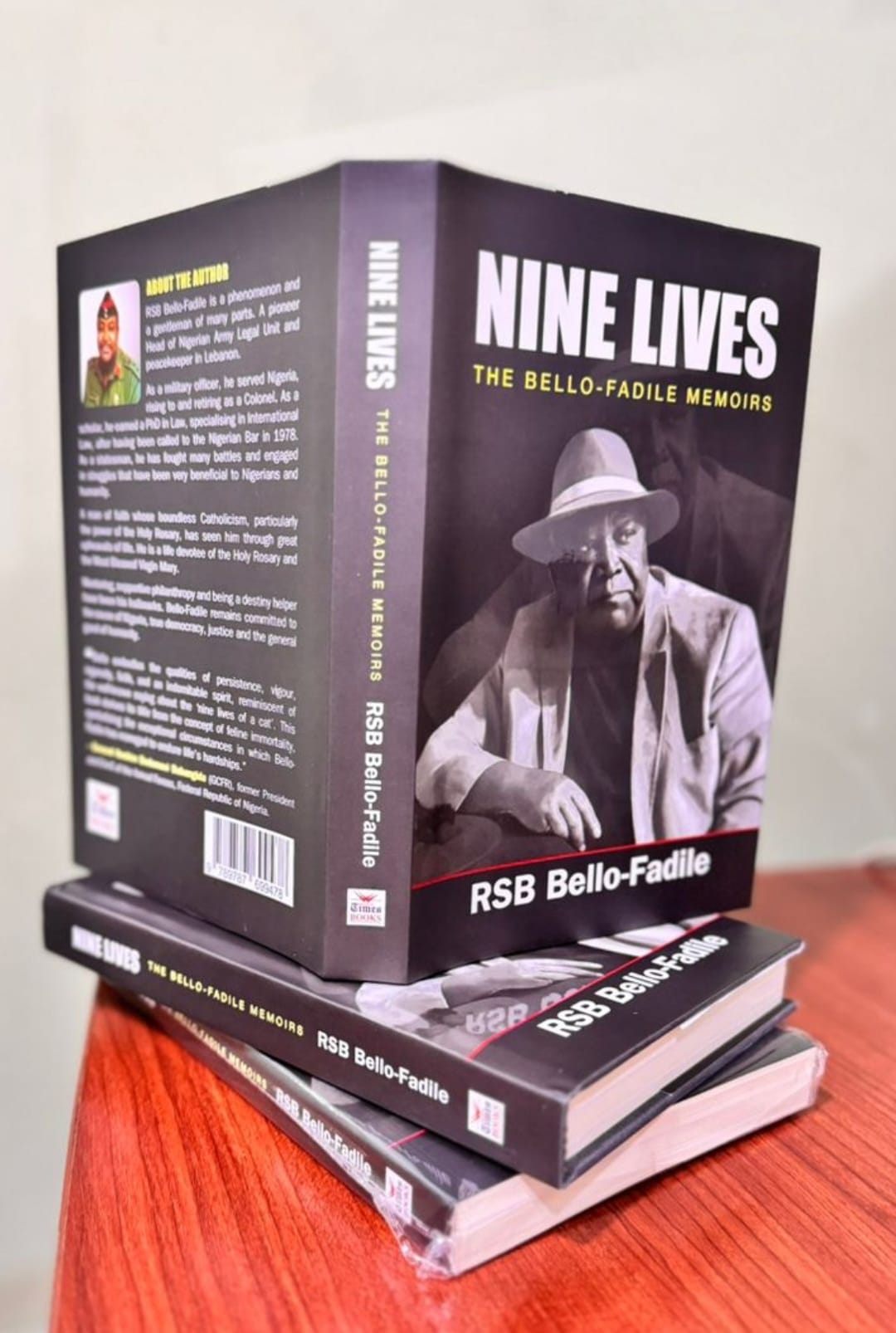•Book offers insights into horrors of military coups in Nigeria
Senator Iroegbu
Former military Heads of State, Gen. Ibrahim Badamasi Babangida (IBB) and Gen. Abdulsalami Abubakar, will be among the dignitaries on Monday in Abuja at the book launch examining the harrowing era of military coups in Nigeria.
The book, titled ‘Nine Lives: The Bello-Fadile Memoirs’, was authored by Col. Bello Fadile (rtd), a key figure in the 1995 “phantom coup” against the late General Sani Abacha. Babangida, who wrote the foreword of the book, will serve as the Grand Patron of the Day, while Abdulsalami Abubakar will chair the occasion. Former presidential candidate under the Social Democratic Party (SDP) in 2024, Prince Adewole Adebayo, will be the Chief Book Presenter, and Prof. Agbo Jerry Madaki will review the book.
Col. Bello Fadile, a respected intelligence officer of the Nigerian Army with a doctorate in law, was arrested, tried, and sentenced to death in the tragic saga that implicated dozens of prominent Nigerians, including former President Olusegun Obasanjo, his erstwhile deputy when he was the military Head of State, Maj-Gen. Shehu Musa Yar’Adua (rtd), who died in Abakaliki prison, and Brigadier General Lawan Gwadabe (rtd).
Speaking to journalists in Abuja on Sunday about his upcoming memoir, Bello-Fadile recounted his experiences and the story of his life and career. He noted that he was court-martialed and sentenced to life for advocating a non-violent composition of an Interim Government to replace the military junta of his then-friend and boss, Abacha.
Expressing gratitude to Gen. Abdulsalami Abubakar for his freedom, Fadile recalled the life-changing moment in the early hours of March 4, 1999, when he received the news of his release from prison.
In his testimony, part of his upcoming book, “Nine Lives: The Bello Fadile Memoirs,” he narrated:
“25 years ago, in the wee hours of March 4, 1999, I heard a tap, tap, tap on my cell window and a voice calling, ‘Colonel! Colonel!! Wake up.’ I got up and went closer. Then I saw the warder on duty, a retired Warrant Officer of the Nigerian Army now working for the Nigeria Prison Services. He said, ‘Oga, you are free; congratulations, sir, start packing your things; you are going home.’ I asked him, ‘What did you just say?’ He replied, ‘Yes sir, you are to be released today, sir.’ I believed him and rushed to the general open cell opposite mine to tell the two other inmates who were on a three-day dry fasting with me, seeking God’s intervention in my situation. It was the beginning of the third day. I told them the good news, and they shouted, ‘Hallelujah!’ We stood up and joined hands to sing: ‘God is able, abundantly able, to deliver and to save; The Lord is able, abundantly able, to deliver those who trust in Him. Hallelujah!’”
Fadile’s book also provides a chronology of coup d’états in Nigeria, including the 1995 ‘attempt’ against Abacha, which was a precursor to another in December 1997. This later attempt saw Abacha’s deputy, the late Lt-Gen. Oladipo Diya, then Chief of Army Staff, Lt-Gen. Ishaya Bamaiyi, and other generals, including Abdulkareem Adisa and Tajudeen Olanrewaju, played against one another.
He assured the book provides an enlightening overview, offering deep insights into Nigeria’s tumultuous military past and the resilience of those who lived through it.

